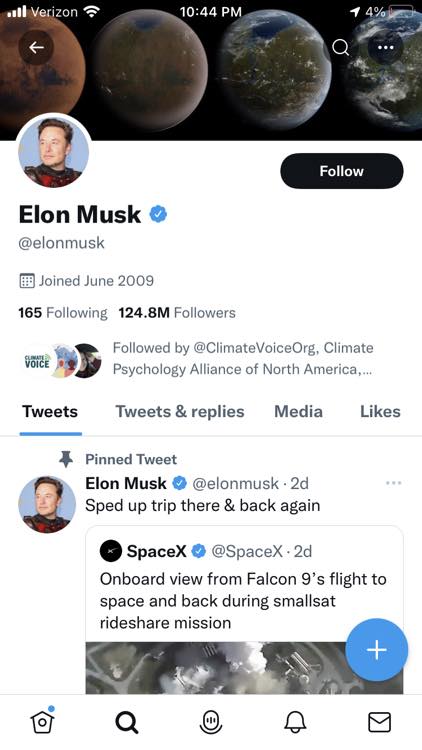
At least I’ve found one good thing about Elon Musk – as an object lesson for my kids on what kind of person not to be. Both my husband and I are big Twitter users (me for work particularly) and so the kids have heard us complain about the ongoing saga at that particular social media platform.
Post-Christmas, one of my kids was lamenting a toy he didn’t get. I sympathized – it is disappointing when you don’t get something you want! But as the conversation went on, I tried to point out a potential shift in attitude.
I said, “Elon Musk is the richest person in the world and he spent $44 billion dollars because he didn’t think enough people liked him. And now way more people hate him because he screwed up the tool they use to talk to their friends and read interesting people’s words. Wanting things that you don’t have is a guaranteed way to be miserable.”
I cited wanting a new house, thinking it’s going to make everything better. But then, if you get that new house and it doesn’t make everything better – because of course it won’t – you’ll want something else instead. Like new furniture or a new car. And it will just escalate from there.
Truly, dwelling on wanting things you don’t have really does just lead to misery. If there’s one topic I found when researching my book that the social science research supported more than any other one, it was that being materialistic led to more misery in the world. Materialistic people that value things more than people have worse relationships, are less likely to donate to charity, are less likely to be kind to others, and are less likely to be happy overall. And of course, it’s terrible for sustainability. Consumer culture ends up driving lower and lower wages among the people who make the goods, using more and more energy, and producing more and more waste. When Granny Weatherwax in Terry Pratchett’s Carpe Jugulum says, “Sin, young man, is when you treat people like things. Including yourself,” it has some definite truth to it.
Now, this unmoored longing is different from wanting a specific item to solve a specific problem. For example, a while back I wanted new running shoes because my old ones were so worn out they weren’t providing enough support. Once I got new ones, my knees felt a lot better and that problem was solved. The same goes if there’s a consistent leak in your house’s roof or a car that is constantly on the edge of breaking down. Everyone needs to buy food, housing, and clothes. Those are specific problems that cause stress that specific fixes can solve. Money applied strategically can buy some level of stress relief and therefore happiness.
But that’s not the message our culture is always pushing. Instead, our economy that’s driven by making ever more money that requires ever more consumption reinforces the general consumerist desires. That’s exactly the point of most ads.
Pushing back against this when our kids are bombarded with it every day is really hard. And it’s hard for our kids too.
So what can we do? We can point out that having access to everything in the world won’t buy happiness, as I did. We can build our kids’ emotional resilience through strong relationships so they aren’t so vulnerable to these messages of “more more more.” We can counter those messages by modeling gratitude ourselves. Instead of lamenting what we don’t have, we can be thankful for what we do and find ways to share it with others. It can be through more formal means – we say grace at dinner – or through just noticing good things at random times.
Coming out of a season that can often be excessive – excessive toys, excessive food, excessive activities – can be hard. Kids and adults alike are overwhelmed yet still missing everything being so extra. Appreciating and enjoying what we have rather than what we don’t can be a little bit of an antidote to that feeling and push back against those toxic systems that surround us.